Suboxone: Inside the new drug scourge in Queensland’s prison system
Police detectives and corrections intelligence officers are working together to tackle a new, virtually undetectable drug plaguing Queensland prisons. Here’s why it’s so dangerous.
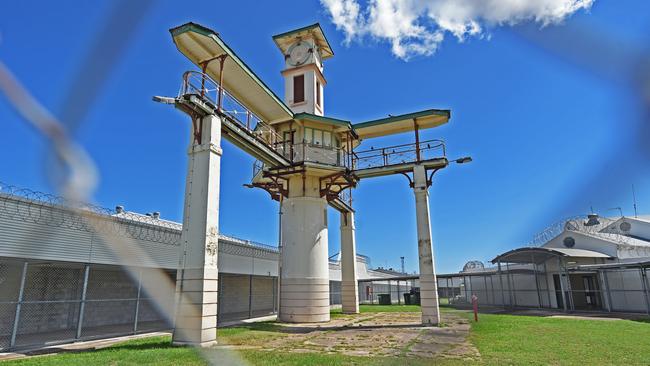
Townsville
Don't miss out on the headlines from Townsville. Followed categories will be added to My News.
Police detectives and corrections intelligence officers are working to tackle a new, virtually undetectable drug plaguing Queensland prisons.
Police have seen the black market drug trade of Buprenorphine — a prescription opiate used to help wean people off ice and heroin — spread in jails across the state in the last 12-18 months.
It comes as at least 19 prisoners in the Townsville Correctional Centre have been charged with drug offences in six months relating to the drug known among prisoners as ‘subbies’.
Dozens were charged following an intensive four-month joint operation with the Intelligence Unit at Queensland Corrective Services (QCS) and Queensland Police Service (QPS).
Detective Senior Sergeant Phil Watts, officer-in-charge of the Northern Major and Organised Crime Squad, said it was “extremely difficult” to detect Buprenorphine, which was sold under the brand name suboxone because it comes in a thin clear patch and is very easy to conceal.
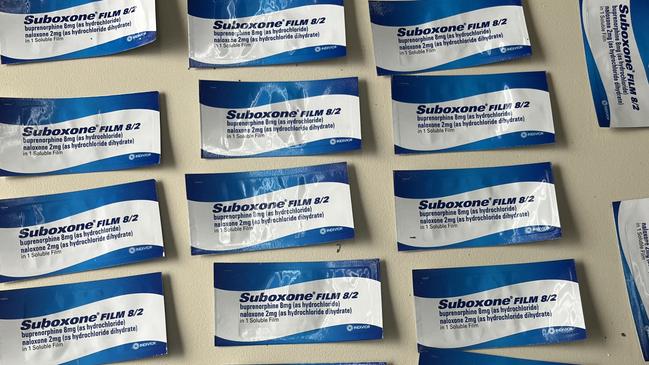
Prisoners are using nappies, food and laundry to smuggle the drugs in at the jail in Townsville, according to inside sources.
Prison sources have also said family members were often smuggling the drug into the prison, or arranging elaborate drops while inmates are out of the correctional centre for hospital visits.
“We’ve worked with Corrective Services to try and address that,” Sgt Watts said.
“They’ve certainly put things in place to make it more difficult and to clamp down on any systemic issues which were leading to it being introduced to the prison community.”
Sgt Watts said suboxone sold on the black market was quite expensive, reaching up to around $1000 a dose during Covid.
“It’s not confined to Townsville prison, there is quite a deal of intelligence and evidence out there that it is being used widespread throughout prisons in Queensland,” he said.
“It’s problematic. Prisoners obviously have to pay for this illicit drug, and they put pressure on their families to find the funds — which are quite significant — and in our experience, that can lead to domestic violence issues that we’ve had to address.
“So it’s more than just a drug use problem, it does impact the community on the outside as well.”
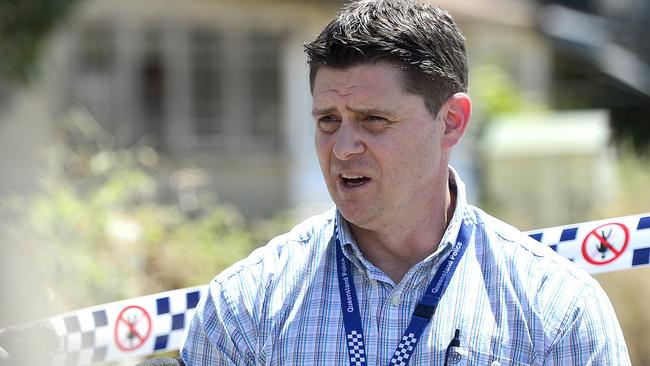
Police are also working with Queensland Health to understand how often the drug is being prescribed in the community.
“We’re looking if there are people sourcing large quantities of it from various doctors, and we’re also working with Australia Post doing mail inspections because a lot of it is ordered online as well, and we pick it up through the post,” Sgt Watts said.
A QCS spokesperson said officers have foiled ‘several complex plans’ to introduce drugs and other prohibited items into the Townsville Correctional Complex.
They said several items were seized as part of the investigation, including suboxone, methamphetamine, tobacco, mobile phones and vapes, among many other prohibited items.
Townsville Correctional Complex general manager Louise Kneeshaw said QCS had a zero-tolerance approach to bringing drugs into correctional centres.
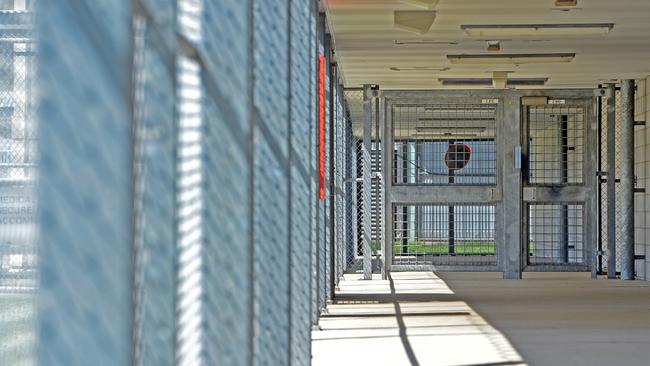
“A lot of hard work went into achieving this success, and it has been satisfying to hold so many prisoners accountable for their illicit activity,” she said.
“I want to thank all the officers involved in this investigation in both searching and providing our Intelligence Unit with those crucial bits of information that continue to help ensure the safety, security, and good order at Townsville Correctional Complex.
“The continued collaboration with QPS, the information sharing within the centre, the diligence and vigilance of staff is having real and measurable impacts.
“Correctional centres are controlled environments for a reason, and introducing illicit substances endangers the safety of our officers, visitors and prisoners. Contraband has absolutely no place at our centres.”
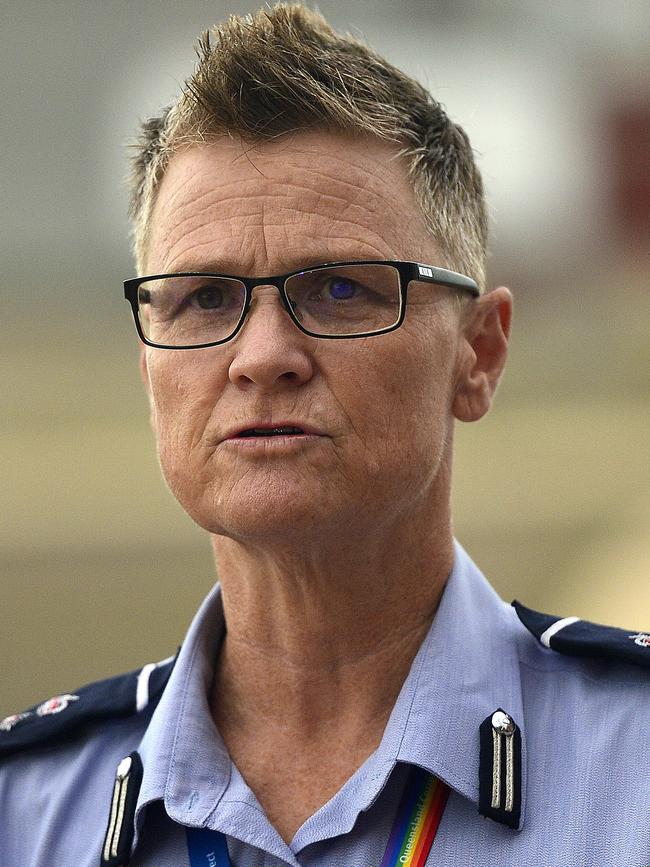
Detectives from the Major and Organised Crime squad charged 13 prisoners with 77 offences, including four offences for drug trafficking, 38 for drug supply, eight breaches of the Domestic and Family Violence Prevention Act and 27 offences against the Corrective Services Act for introducing prohibited items into Townsville Men’s Correctional Centre.
“In total, 37 people, including prisoners and alleged offenders in the community, were charged with 210 offences, including trafficking in dangerous drugs, supplying dangerous drugs, money laundering, contravening a domestic violence order (aggravated offence),” said the QCS spokesperson.
Dr Hester Wilson, a specialist in addiction medicine with the Royal Australian College of General Practitioners, said the “lucrative” black market for Suboxone wouldn’t be so rife in jails across Queensland if the state offered opiate substitution treatment programs for male prisoners.
Prison sources maintain that there are hundreds of prisoners at the TCC suffering from addiction to methamphetamine and experts said the withdrawal symptoms can be severe.
Prison officers said suboxone, although obtained illegally, was quite common at the centre and was sold to addicted prisoners in strips for $300 to $400 per strip.
Inmates were going to extreme lengths to move drugs around the centre with at least one prisoner attempting to climb the wall of a unit to reach prisoners in another, and fell, severely injuring their leg.
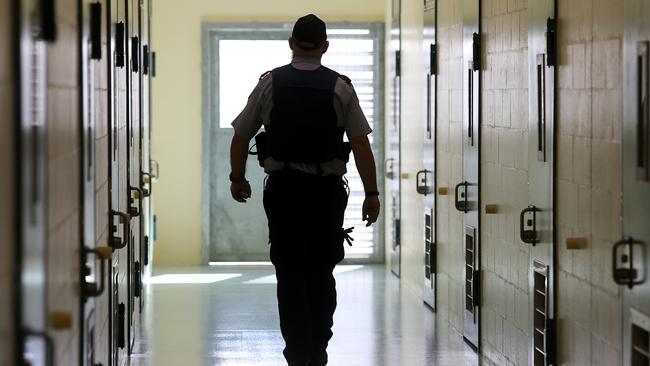
“A tab just dissolves on or under your tongue, so it’s easy to take and easy to conceal and smuggle in,” said an officer who would not be named.
“The heavy ice users in here reckon the subbies really help them ease their withdrawals, so the market for them is going to remain strong.
“And subbies are the easiest drug to smuggle into the centre and they come in nappies, inside food and even through the official laundry.
“Plus, the PADD (Passive Alert Drug Detection) dogs can’t detect subbies when they check the visitors coming into the centre.”
Another officer said one prisoner had been found in possession of about $7000 in cash that had been accumulated from the sale of suboxone.
“So it’s a good business and its growing,” he said.
Townsville court officials said the first cases of prisoners charged with suboxone possession in the prison were just beginning to reach the courts.
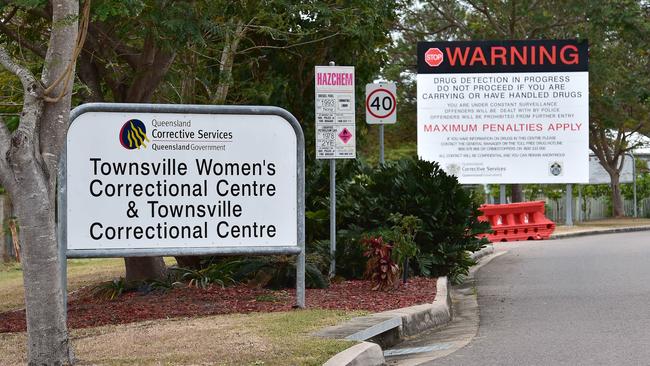
“It’s serious because if a prisoner is convicted of an offence while serving a sentence then the new sentence is added on cumulatively, not concurrently,” explained a court prosecutor.
Suboxone can be used as an induction agent to stabilise someone in withdrawal during the medical detoxification process as well as for maintenance treatment to promote recovery from opioid use disorder.
It consists of a combination of two drugs: buprenorphine (a partial opioid agonist) and naloxone (an opioid antagonist) and is administered as a dissolvable film placed either under the tongue or in the cheek.
Suboxone can result in physical dependence with long-term use due to the inclusion of buprenorphine, which is an opioid.
The Pharmacy Guild of Australia, Queensland Branch spokesperson said the drug was prescription only and was done through a pain specialist managed through the Queensland Opioid Treatment Program.
“It can be prescribed by a GP if they have completed the Queensland Opioid Treatment Program (QOTP),” the spokesperson said.
The QOTP began in 1977 and provides treatment for opioid dependence, including prescription opioids. The aim of treatment is to reduce the health, social and economic harm to individuals and the community.
She said suboxone was normally prescribed for one month’s supply but it was issued daily, twice weekly and at a maximum, weekly.
“There have there been no reports of break-ins at pharmacies or warehouses where this drug has been stored in any quantity,” said the Guild spokesperson.
She said pharmacists combat attempts to illegally obtain drugs such as this by working in conjunction with the prescriber to minimise the risk.
More Coverage
Originally published as Suboxone: Inside the new drug scourge in Queensland’s prison system




